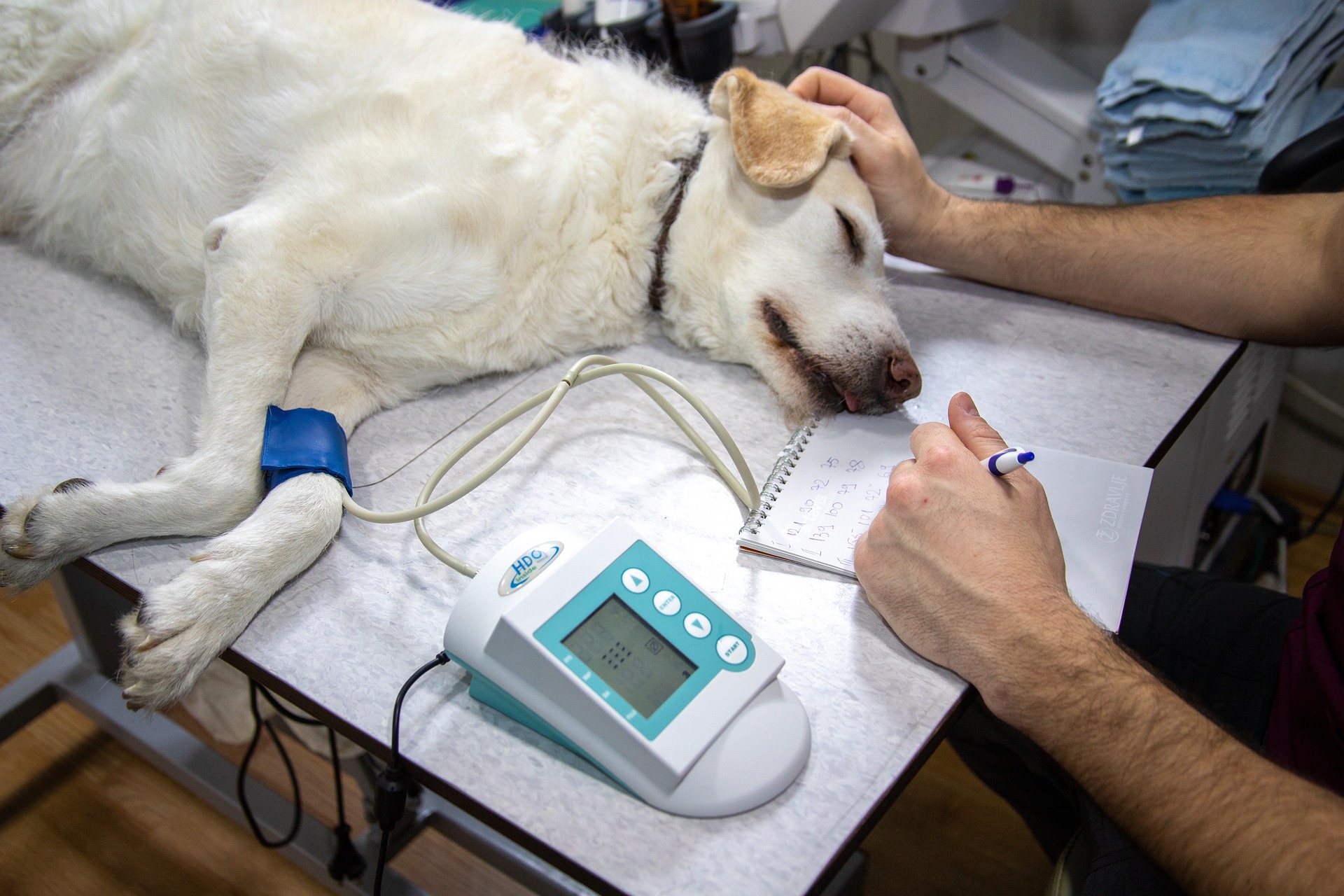A number of highly qualified veterinarians have approached Daily Maverick with grave concerns about the state of governance in their profession. Fearful of victimisation, they cannot go public with their names, though they have provided them to this publication.
Their testimony, combined with documents and statements from the South African Veterinary Council (SAVC) and the Ministry of Agriculture, paints a picture of a regulator in crisis: two failed elections, glaring governance lapses and an exodus of vets from South Africa that the authorities appear unable — or unwilling — to address.
At the heart of the storm lies the SAVC, a statutory body established under the Veterinary and Para-Veterinary Professions Act 19 of 1982. By law, all practising vets, para-veterinarians, nurses and technicians must register and pay annual fees to the council.
This year the council has stumbled from one electoral fiasco to another, leaving the profession without a legally constituted governing body and forcing Agriculture Minister John Steenhuisen to intervene.
Responding to a request for clarity from Daily Maverick, the minister said he shared the concern of the vets and urged the SAVC to “rerun the elections promptly”. If it failed to comply, he would explore other options, “including court intervention or invoking interim nominations” to fill vacancies. He urged the SAVC to resolve the issue “within the legislative framework”.
The CEO of the council, Mongezi Menye, said: “The SAVC would like to state that the matter of the elections has been escalated to the president of South Africa and to the Portfolio Committee on Agriculture. We therefore don’t want to comment further at this point in time regarding this matter.”
He supplied Daily Maverick with a lengthy statement to President Cyril Ramaphosa, but marked it highly confidential so we cannot quote from it.
Why it matters
South Africa is already suffering from a shortage of veterinarians. About 100 veterinarians leave the country every year to work overseas, when only about 140 qualify annually, according to recent figures by the Department of Agriculture, Land Reform and Rural Development.
Graduates from Onderstepoort, the country’s only veterinary school, are highly sought after abroad, with reciprocal arrangements allowing them to register with minimal paperwork in countries such as Australia, New Zealand and the UK. Foreign employers offer visas, relocation bonuses worth nearly half a year’s South African salary, and full family travel costs.
Meanwhile, foreign vets wishing to work in South Africa face daunting hurdles. They were briefly on the scarce skills list, then removed, then reinstated with the condition that they serve a year of compulsory community service — at a location not of their choosing.
The state, critics note, contributes nothing to their training abroad yet demands they work where the government dictates if they wish to practise here. Unsurprisingly, very few have applied for registration since 2023.
The result is a one-way street: South African vets leave, but almost none come in. Letters of Good Standing issued by the SAVC, a requirement for registering with foreign boards, suggest a growing wave of emigration. By contrast, the number of scarce skills visa letters for incoming vets is vanishingly small.
This exodus has cascading effects. State veterinary services are understaffed. Rural education programmes for emerging farmers lack support. Disease surveillance is faltering — raising the risk of outbreaks that could devastate South Africa’s export markets, not only for animal products but for all agricultural products.
The compulsory community service programme for new graduates, intended to fill the gap, is itself dysfunctional and often places vets in underfunded facilities with little supervision or support.
Animal welfare is another casualty. With fewer vets available, welfare organisations struggle to provide care, especially in rural areas. The vets who spoke to Daily Maverick describe a growing sense of despair: “The SAVC seems not at all concerned about the exodus of vets or the consequences for animal welfare.”
While council leadership flounders, the consequences for animal health and the profession are considerable.
Two failed elections
The crisis began in March 2025 when the SAVC announced the list of candidates for council elections, with voting set to run until 16 April 2025. An external company, EasyVote, had been contracted to oversee the ballot.
But just days before the close of voting the council, led by CEO and registrar Menye, abruptly cancelled the election. Three candidates had been allowed onto the ballot who did not meet the most basic legal requirement: they were not South African citizens.
The announcement, made in an SAVC email dated 14 April, admitted the candidates did “not fully comply with the said requirements”. A new election was promised, starting on 23 April.
The responsibility to check eligibility rests squarely with the registrar of the SAVC. As one vet asked: “Why was this not identified before the election list was published? What costs — financial and reputational — have been incurred because of this last-minute failure?”
If the first cancellation suggested incompetence, the second pointed to something more troubling. On 2 June 2025, the SAVC admitted that another election had to be cancelled. This time, the problem was that a candidate who had been found guilty of a serious offence by the council itself just two years earlier had been included on the ballot.
The disciplinary action had been published in the Government Gazette, meaning it was a matter of public record. The inclusion of such a candidate, vets argue, shows that the registrar had not even undertaken the most perfunctory due diligence steps.
The debacle eventually drew the attention of the Minister of Agriculture, John Steenhuisen. On 3 August 2025, he issued a statement acknowledging “serious concerns” about transparency and procedural integrity in the SAVC’s election process.
Steenhuisen highlighted irregularities: inconsistent communication of voting deadlines, questions about candidate eligibility, and doubts about the independence of the verification process. He reminded the SAVC that under its own regulations, the registrar may only accept a nomination if satisfied that the candidate complies fully with Section 6 of the act.
The minister demanded a full report, alerted Parliament’s Portfolio Committee on Agriculture, and warned that if legal advice did not confirm the validity of the elections, the process would have to be restarted.
Legal and governance failures
The Veterinary and Para-Veterinary Professions Act sets out in detail how the council must be constituted, who qualifies to stand for election, and the registrar’s responsibilities in overseeing elections.
The disciplinary rules, published in the Government Gazette of 14 June 2024, further empower the council to sanction professionals found guilty of misconduct.
That a candidate previously found guilty of serious misconduct could appear on the ballot, say the vets who approached Daily Maverick, indicates a breakdown of basic corporate governance. As the vets stressed, this undermines the integrity of the council, wastes members’ compulsory fees, and contravenes the very act under which the council operates.
What emerges from the documents and testimonies is a picture of a regulator adrift. The SAVC has failed to run elections in compliance with the law, undermined its own credibility, and forced the minister to intervene.
Its registrar has repeatedly failed in his legislated duties, yet sought to shift blame to political authorities. For the vets who approached Daily Maverick, the problem is that:
- Without a legally constituted council, the profession risks regulatory paralysis.
- Without credible governance, public trust in veterinary oversight evaporates.
- Without decisive action, South Africa will continue to lose vets at a time when it can least afford to.
The Veterinary and Para-Veterinary Professions Act was designed to ensure high standards of competence, ethics and accountability. Today, those very standards are in jeopardy. Two failed elections, a mounting exodus of professionals and a regulator under fire reveal a sector in deep trouble.
As one vet told Daily Maverick: “We don’t have a functioning council. We don’t have accountability. And while they argue about elections, animal welfare and public health are the ones paying the price. We vets just want them to do their jobs.” DM






